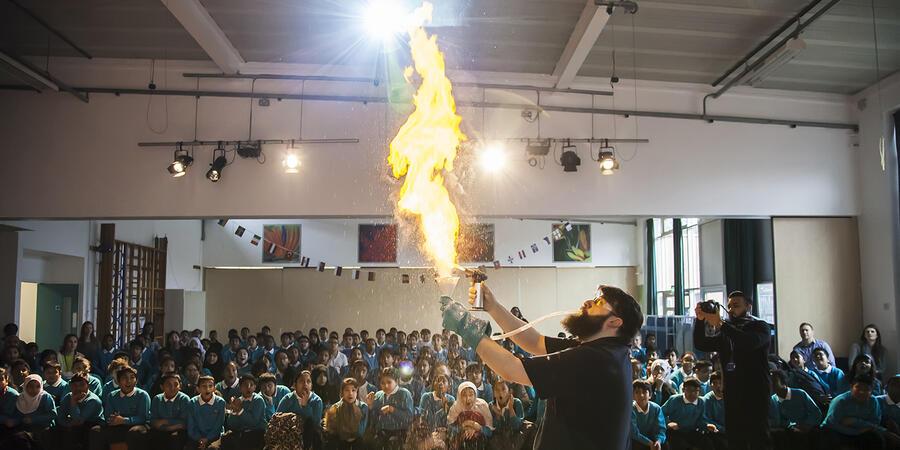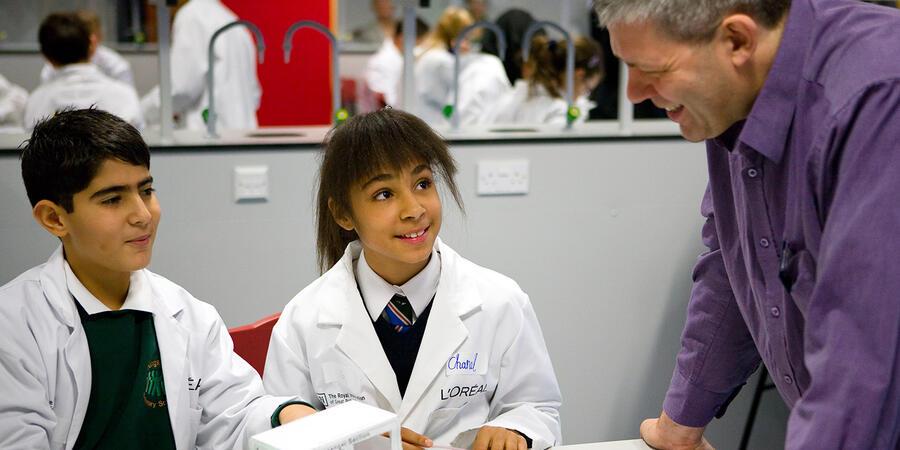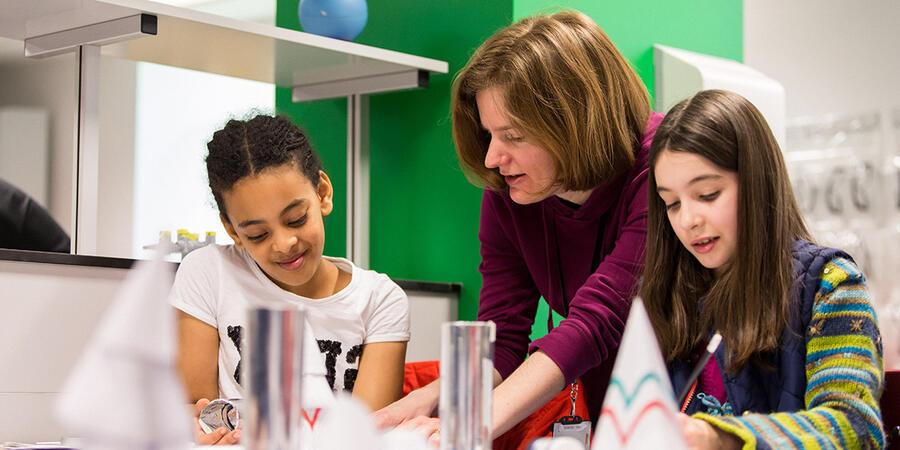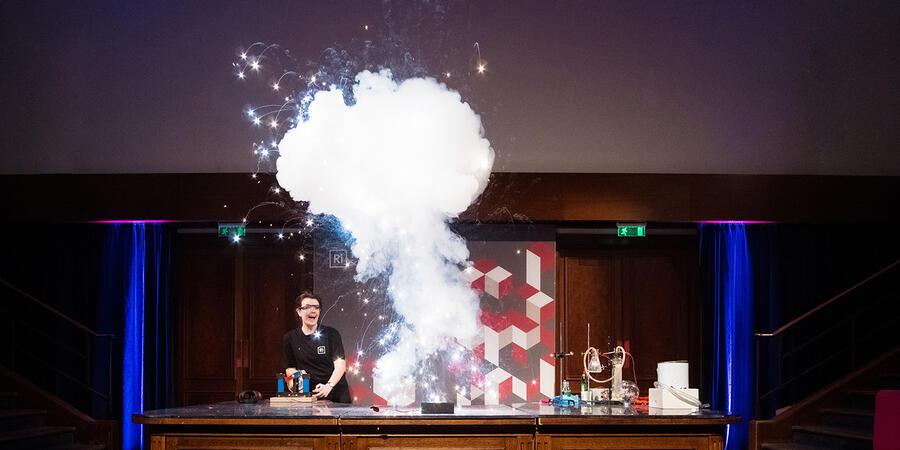As British Science Week draws to a close for another year, we can reflect on the wonderful opportunity it represents for people to join scientists and explore and enjoy science together.
With its focus on schools and education, we’ve been supporting Science Week by connecting schools across the UK via photos and stories shared by our Science in Schools presenters. We’ve also been welcoming expressions of interest for our grant programme which opens for applications at the beginning of May, offering free visits from our professional presenters to include three explosive shows for students and the wider school community, and valuable CPD for teachers.
It's a busy week, Science Week. Our schools team was fully booked, as was our L’Oreal Young Scientist Centre, and today (as I write) we are delivering live shows online for hundreds of students at an international school in Hong Kong. We welcomed over 300 teenagers to our Theatre to explore DNA and, as they make exam choices that will shape the rest of their lives, to hear from researchers in the field about what a career in science is really like. And we welcomed a family audience to get to know those unloved, but absolutely amazing creatures wasps, snakes and rats, a little better. I was very much rooting for Team Rat.

As a former team member of the Week’s organisers, the British Science Association, I will be a lifelong supporter of this 10-day festival of science (a week is a long time at the BSA!). Everyone wants some science in British Science Week.
So the trick, as my former colleagues will tell you, is to extend the impact of Science Week – and with it the range of opportunities to engage with science and scientists right across the UK – into the week that follows. And the week after that, and the week after that. That is an aspiration, to bring scientists and the public together to explore science, that we wholeheartedly share at the Ri.
Because if you look at the findings of the 2019 survey into Public Attitudes to Science, only 22% of the UK population feel ‘actively connected’ to science, while most people (82%) felt that science is a such a big part of our lives that we should all take an interest in it. That’s a clear disconnect.
Admittedly the most recent PAS was published in 2019, less than a year before the pandemic hit. When the next survey is published we would hope, expect even, that it reflects the opportunities to connect with science and scientists during the challenging years since. Because during the pandemic, science was beamed live, every day, into our living rooms and into our lives like never before.

We saw the explorative, iterative process of scientific research developing before our eyes. Previously hidden scientists like our 2021 Christmas Lecturer, Jonathan Van-Tam, stepped into the spotlight and became household names. We came to appreciate that scientific advance, by its definition, is at the very edge of our knowledge, and that there is often less certainty in science than we might expect. We witnessed the collaborative nature of science first-hand, with doors to research labs across the UK and around the world, thrown open to reveal teams and teams of scientists connected by a common goal.
And with several effective vaccines developed and deployed in less than 12 months – a process that can often take 10 years or more under normal circumstances – rarely can there have been a better example of science’s relevance to all our lives.
Yet the findings of that 2019 survey should be a reminder to us all – particularly those of us who work at organisations with a mission to drive public engagement with science – of how much there is still to be done. And, of course, where there are opportunities to do it; opportunities such as British Science Week.

We are fortunate in the UK to benefit from many and varied opportunities to explore and get involved with science. And we have a rich tapestry of places dedicated to providing them: charities, educational establishments, research institutes and more.
At any of the Science Museum Group’s locations around the UK, you can engage with the history of scientific advance in virtually every area of life. There are many and varied Science Discovery Centres, or zoos and aquaria, also located nationwide.
At the Royal Academy of Engineering, their fantastic ‘This is Engineering’ campaign is shedding light on the wonderful and unexpected places where engineering manifests (stage design? Yep, that’s engineering. Shoe design? Yep, there’s engineering in that too). And of course on YouTube – including through our very own Ri channel – by choosing wisely you can access authoritative science anywhere in the world, and at any time of day or night to boot.
Why am I sign-posting these ‘competitors’ to the Ri? Because to my mind, they’re not competitors at all. Rather, they are allies, collaborators and friends. We are all committed to expanding the range of connections that people can have with science. We’re all striving to provide opportunities for more and more people, especially groups who face particular access barriers. It’s an enormous task, and working together will help us get there faster.

Here at the Ri, we have what is essentially a festival of science that never ends, with world-leading scientists coming together with the public in our historic Theatre and online, two, three or four times a week. And others, like Gresham College or Pint of Science do something similar.
When we publish our new Ri strategy at the end of this month, we’ll be setting out our five-year plan to drive equitable access to science. And it’s important that people find a source of science which is right for them; central to equitable access is multiple opportunities to engage.
If anyone discovers science through the Ri and then finds more to deepen their engagement at the Science Museum, or the National Railway Museum, or any of the Science Discovery Centres – or vice versa – then we can all consider it a job well done.